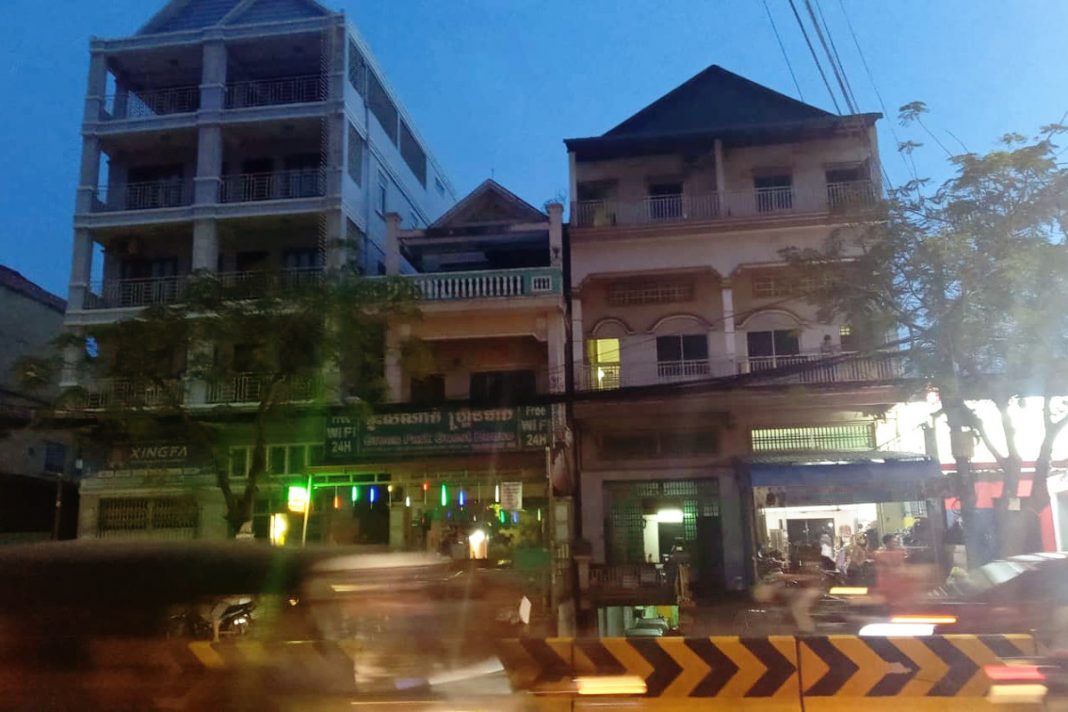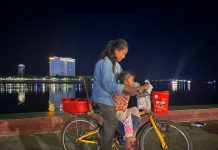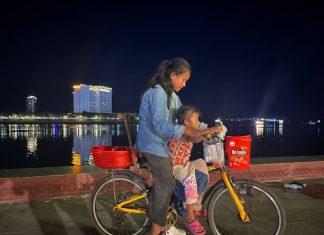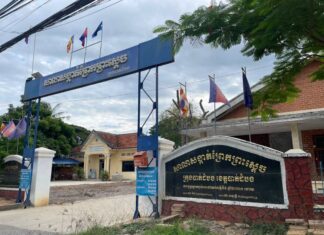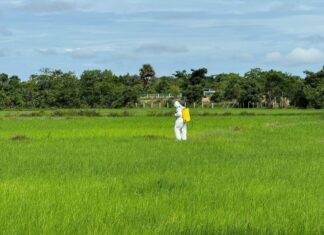Economists say it could take at least until the end of next year for the Cambodian economy to recover from the impacts of Covid-19, with unemployed people likely to struggle to find jobs and adapt to new realities.
More than 16 million cases of coronavirus worldwide have shut down international travel and reduced trade since the pandemic’s outbreak in the beginning of this year, causing a severe global downturn. Cambodia’s tourism and garments exports — among the country’s major growth drivers — have been hit hard, and more than 1 million jobs are at risk by one estimate.
Ngeth Chou, a finance specialist and investor, said the recovery of the global economy would likely only start once a vaccine was widely available — mid-2021 at the earliest, meaning Cambodian exports would only recover at the end of 2021 even in an optimistic scenario.
Chou said the impact of Covid-19 on the Cambodian economy and employment would continue to be felt as long as the virus persisted worldwide.
He put forward two scenarios: in the first, that the disease continues for four to five years, as the World Health Organization has warned; in the second, that a vaccine is ready by the end of the year, as some reports out of the U.S. have predicted.
Even in the latter case, a vaccine’s distribution would take about half a year, he said. “So the economy should begin a recovery in the middle of 2021, and export demand may resume at the end of 2021. So Cambodia’s economy should be back to normal by the end of 2021 or early 2022.”
Seng Tith, an economics professor at the National Institute of Business in Phnom Penh, agreed with the timeline.
The pandemic has caused widespread job losses, factory closures and a decline in demand, all of which will take some time to restore.
“Many business activities related to the service sector, including tourism, hotels, casinos and karaoke [parlors], pose the greatest threats to employment. The finance and banking sectors will be also affected after the impact continues for long time,” Tith said.
“And I think that these impacts could continue until a vaccine is successfully distributed or medication for this virus is found, and it will span at least through 2021.”
Daily Struggles
Phon Monisa, a 30-year-old former employee of Srey Rath Tour & Travel, said he has been forced to tackle unfamiliar work since he lost his job in April.
He has tried his hand at real estate, but few people are buying plots of land. “Unfortunately, I have been unable to sell any,” Monisa said.
There is only the expense of fuel to take clients out to see the land, and no earnings from sales, he said.
Monisa has also started to do motorbike deliveries for online sellers. He hopes it will at least be enough to pay the bank.
It was “just to earn more money for paying off the debt for the land that I bought before the Covid situation,” he said. “I may have to borrow money from my relatives or sell my property to pay off the land I bought if I cannot find a new job in the next few months.”
Nget Sophanith, a 20-year-old barista at Momo Café in Phnom Penh, said he was worried he would soon also become a victim of growing unemployment. There were only about half the customers the shop used to have, he said.
“My café has been very quiet,” Sophanith said. “My boss hasn’t cut my salary, but if this situation continues for a long time, I am really worried that my shop will close and I will lose my job.”
Chou, the finance specialist, said joblessness and debt would be two major struggles for Cambodians in the coming year.
“No matter whether they want to or not, this long duration will force people [who lost their jobs] to sell their property to support themselves and pay off their debts,” Chou said.
Women formerly at garment factories — more than 400 of them have closed or suspended production, leading to 150,000 job losses — could look to work as maids and nannies. They would be paid and fed, so at least “they won’t encounter the malnutrition issue,” he said.
Men, meanwhile, would likely need to leave the city and return to their home provinces to plant crops, breed livestock or catch animals like frogs, fish and shrimp, he said. They would need to be “adaptable and flexible.”
Guidance around changing careers, possibly provided by the government, would help. The unemployed cannot wait for their old jobs to return, Chou said.
Stimulus Efforts
Vongsey Vissoth, vice-chairman of the Supreme National Economic Council, spoke at a press conference earlier this month that 2021 would be about fiscal stimulus even as government revenues plummeted.
“[In] 2021, we will spend a lot of money,” Vissoth said. “The revenue from this first semester of 2020 was mainly covered by the first four months, while for the last two months it has significantly declined. So the basis for tax collection next year will not be good, because businesses won’t be profitable and some of them have shut down.”
The government will nevertheless distribute $1.2 billion through tax relief and aid to deal with the downturn, he said.
Stimulus projects would include skills training, social assistance and $600 million in credit for loans. The goal was to help people and businesses “survive,” he said.
“We can’t predict how long and how big the impacts will be, or how long this pandemic will continue, because [the pandemic] has been unprecedented,” Vissoth said, adding that the Cambodian economy is forecast to shrink 1.9 to 5 percent this year.
Labor Ministry spokesman Heng Sour said more than 400 factories have suspended production and 83 have shut down.
“Without an effective measure from the Royal Government and Economy Ministry, the loss will be much greater,” Sour said.
‘Greatest Threat’
According to the World Bank’s latest Economic Update for Cambodia, the global crisis poses the greatest threat to Cambodia’s development in the 30 years of its modern history. The three most affected sectors — tourism, manufacturing exports, and construction — contributed more than 70 percent of growth and 39.4 percent of total paid employment in 2019.
“The collapse of growth drivers has hurt economic growth and put at least 1.76 million jobs at risk,” the report says.
Tith, the economics professor, said households should take health precautions seriously if they want to contribute to an economic recovery.
“First, we should find a solution: Take care of our health and prevent ourselves from infection,” he said, also suggesting boosting agricultural production.
However, Chou, the finance specialist, painted a bleaker picture. He doubted there was much Cambodians could do in the face of a global crisis.
“In terms of households and individuals, they can contribute very little to the growth of the economy, because Cambodia is relying on exports and overseas migrant work,” he said. The high unemployment rate in Thailand, for example, meant there were few opportunities for migration and remittances.
“As for the diversification of other jobs, only the agricultural sector can absorb [the jobless], but there will be a lot of obstacles as those who used to work outside this sector may find it difficult to return.”


